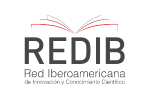Essentialism, species and natural kinds
DOI:
https://doi.org/10.18537/puc.22.01Keywords:
natural kind, species, essentialism, epistemic valueAbstract
This paper aims at stating the range of the various possible responses regarding the nature of natural kinds, especially considering the cases of biological species. I will put forward the existence of a philosophically significant convergence between two of these responses that initially appear as inconsistent. I will describe this convergence in terms of a cooccurrence of epistemic values (Ruse, 1999), that is, in terms of a coincidence with those theory features that are of interest to us because of their significance to scientific explanation.
Downloads
References
Boyd, R. “Homeostasis, Species, and Higher Taxa”, en Wilson, R. (ed.), Species. New Interdisciplinary Essays. The MIT Press: Cambridge, Mass, 1999. Devitt, M. “Resurrecting Biological Essentialism”. Philosophy of Science, 75 ( July 2008) pp. 344–382.
Dupré, J. Humans and Other Animals, Oxford University Press, Oxford, 2002.
Ereshefsky, M. The Poverty of the Linnaean Hierarchy, A Philosophical Study of Biological Taxonomy. Cambridge University Press, Cambridge, 2001.
Ereshefsky, M. “Foundational Issues Concerning Taxa and Taxon Na- mes”, Syst. Biol. 2007, 56(2):295–301.
Ereshefky, M. y M. Matthen. “Taxonomy, Polymorphism, and History: An Introducction to Population Structure Theory”, Philosophy of Science, 2005, 72: 1-21.
Kripke, S. Naming and Necessity. Blackwell, Oxford, 1980.
Kuhn, T. The Structure of Scientific Revolutions. The University of Chicago Press, Chicago, 1966.
Mayr, E. Especies animales y evolución. Universidad de Chile y Ariel. San- tiago de Chile, Barcelona, 1968.
Newton-Smith, W.H. La racionalidad de la ciencia. Barcelona, Paidós, 1987.
Okasha, S. “Darwinian Metaphysics: Species and The Question of Essentialism”, Synthese, 2002, 131: 191-213.
Orellana Benado, M. E. Pluralismo: Una Ética del Siglo XXI. Santiago de Chile, Editorial Universidad de Santiago, 1994.
Putnam, H. “The meaning of ‘meaning’”, en Mind, Language and Reality. Philosophical Papers, Vol. 2. Cambridge University Press, 1975: 215-271.
Putnam, H. Words and Life. Edited by James Conant. Harvard University Press, Cambridge, Mass, 1994.
Quine, W.V. Ontological relativity and other essays. Columbia University Press, New York, 1969.
Ruse, M. The mystery of mysteries. Is a evolution a social construction? Harvard University Press, 1999.
Sober, E. “Evolución, pensamiento poblacional y esencialismo”, Ludus Vi- talis, vol. XII, num. 21: 115-147; publicado originalmente en 1980 como “Evo- lution, Population Thinking, and Essentialism”, Philosophy of Science, 2004, 47: 350-383.
Stanford, P. K. “For Pluralism and against Realism about Species”, en Phi- losophy of Science, 1995, 62: 70-91.
Wittgenstein, L. Investigaciones filosóficas, edición de G.E.M. Anscombe y R. Rhees. Traducción de A. García Suárez y C. Ulises Moulines. UNAM-Crítica, México D.F., 1988.
Published
How to Cite
Issue
Section
License
Copyright (c) 2019 Julio Torres Meléndez

This work is licensed under a Creative Commons Attribution-NonCommercial-ShareAlike 4.0 International License.
Copyright © Autors.

You are free to:
 |
Share — copy and redistribute the material in any medium or format |
 |
Adapt — remix, transform, and build upon the material for any purpose, even commercially. |
Under the following conditions:
 |
Attribution — You must give appropriate credit, provide a link to the licence, and indicate if changes were made. You may do so in any reasonable manner, but not in any way that suggests the licenser endorses you or your use. |
| NonCommercial — You may not use the material for commercial purposes. | |
| ShareAlike — If you remix, transform, or build upon the material, you must distribute your contributions under the same license as the original. |
| No additional restrictions — You may not apply legal terms or technological measures that legally restrict others from doing anything the licence permits. |












